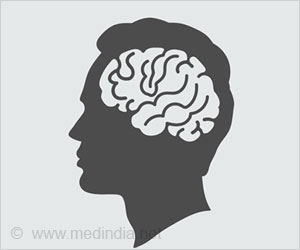- Prolonged social media use is associated with heightened inflammation, posing risks to both physical and mental health
- The study objectively assessed social media impact through a screen-time app, revealing a sustained increase in inflammation levels
- Chronic inflammation, linked to stress, loneliness, and poor lifestyle, raises concerns about the long-term health effects of excessive social media use
In an era dominated by social media, a study published in the Journal of Medical Internet Research sheds light on a concerning revelation: prolonged social media use might be associated with an increased risk of inflammation, posing potential threats to both physical and mental health (1). Led by David Lee, Assistant Professor of Communication at the University at Buffalo’s College of Arts and Sciences, the study delves into the complex interplay between social media habits, inflammation, and mental well-being.
Advertisement
Objective Assessment of Social Media Impact
The research employed a unique approach by objectively assessing social media use through a screen-time app rather than relying on participants’ subjective recall. According to Lee, this methodological shift enhances the accuracy of the study’s findings, circumventing potential errors inherent in participants’ memory of their social media usage. The results, based on this objective assessment, not only revealed an association between heightened inflammation and social media use at a specific point in time but also indicated an increase in inflammation levels five weeks later.
Advertisement
How Chronic Inflammation Affects the Body
To comprehend the significance of these findings, it’s crucial to distinguish between acute and chronic inflammation. While acute inflammation serves as the body’s response to injury or infection, chronic inflammation is a subtler adversary. Triggered by common experiences like stress, loneliness, poor diet, lack of exercise, and inadequate sleep, chronic inflammation might not manifest visibly but is discernible in blood tests measuring the biomarker C-reactive protein.
Did You Know?
The average daily social media use time is approximately 2.5 hours. This adds up to over 900 hours in a year, highlighting the significant impact these platforms can have on our health over time.
Advertisement
Does Social Media Use Increase the Risk of Depression?
The study’s focus extended beyond inflammation, delving into the potential links between social media use and depression. Lee highlighted that social media use emerged as a predictor of heightened inflammation over time, emphasizing the far-reaching implications on mental health. Chronic inflammation is intricately linked to a spectrum of health conditions, including cardiovascular diseases, cancer, diabetes, and various mental health disorders.
Risks of Excessive Social Media Use
The research aligns with an accumulating body of evidence underscoring the risks associated with prolonged social media use. The study’s objective measurement of screen time adds a layer of reliability to the findings, overcoming potential biases and inaccuracies inherent in self-reported data. Lee underscored the need for a nuanced understanding of the impact of screen time on social media, emphasizing the importance of considering objective metrics.
Detecting Inflammation in the Blood
Unlike acute inflammation, which manifests visibly, chronic inflammation operates stealthily, potentially wreaking havoc on health over the long term. Detecting it requires blood tests measuring biomarkers like C-reactive protein. The study’s ability to correlate objective social media usage data with elevated inflammation levels in the blood reinforces the robustness of the findings.
Link Between Mental Health and Social Media
In exploring the links between social media use and mental health, the study offers a timely contribution to the ongoing discourse surrounding the psychological impact of digital engagement. The identification of social media as a predictor of inflammation raises questions about the mechanisms at play and prompts a critical examination of the potential drivers behind this concerning relationship.
As social media continues to permeate every facet of modern life, understanding its implications on health, both physical and mental, becomes paramount. The study by David Lee and his team adds a valuable layer to this understanding, emphasizing the need for a balanced approach to digital engagement. In the evolving landscape of social media, where connectivity coexists with potential risks, fostering awareness and informed usage is key to mitigating the adverse effects on well-being.
References:
- Social media use and systemic inflammation: The moderating role of self-esteem
Lee DS, Way BM. Social media use and systemic inflammation: The moderating role of self-esteem. Brain Behav Immun Health. 2021 Jul 21;16:100300. doi: 10.1016/j.bbih.2021.100300. PMID: 34589792; PMCID: PMC8474231.
Source-Medindia



